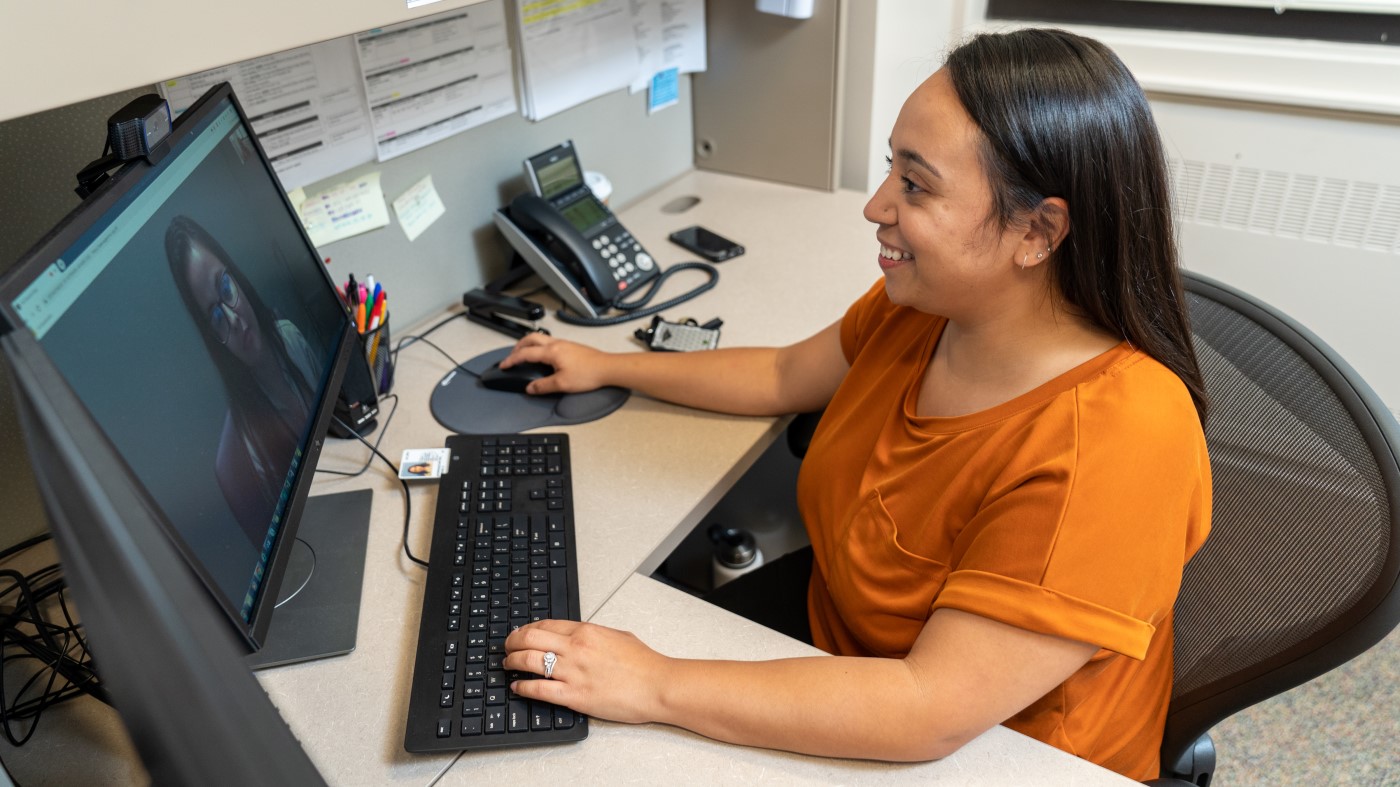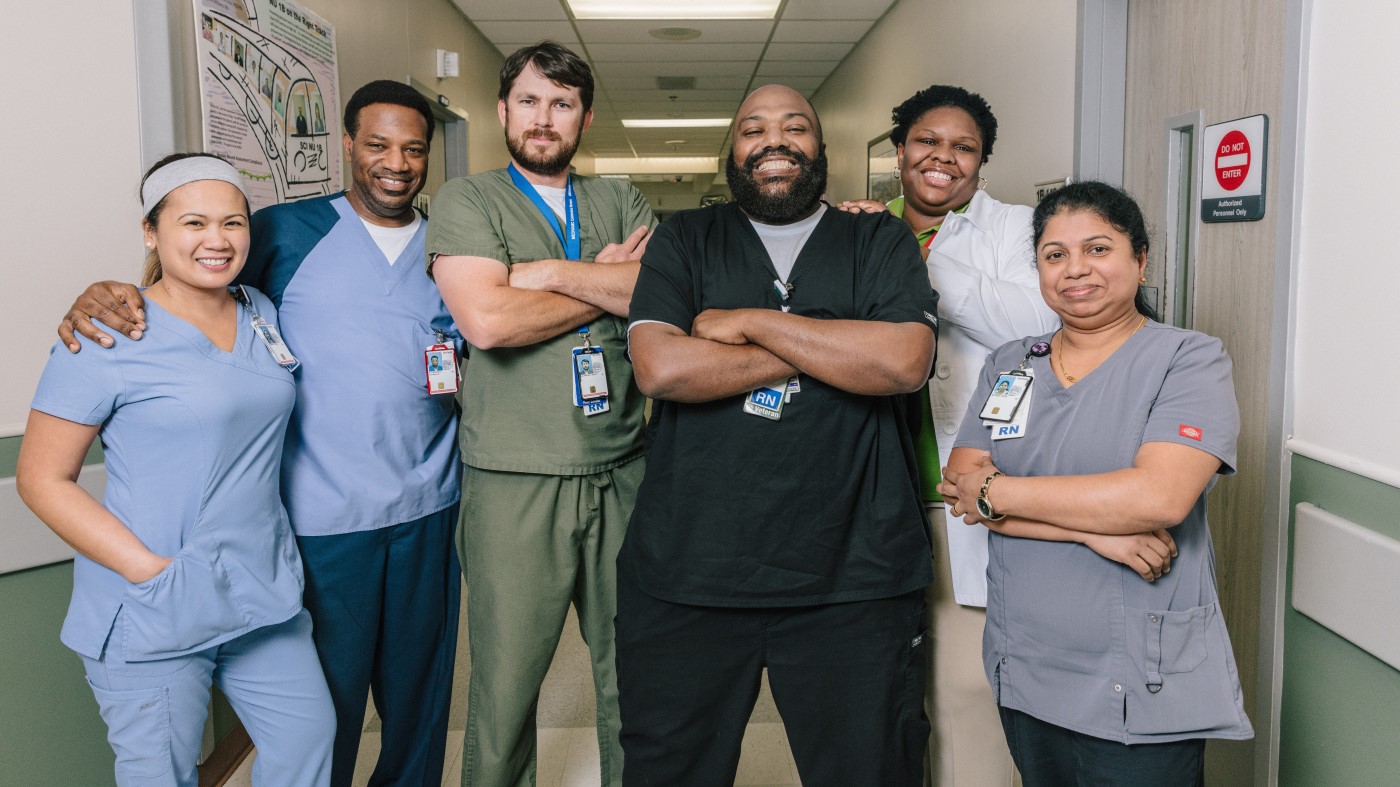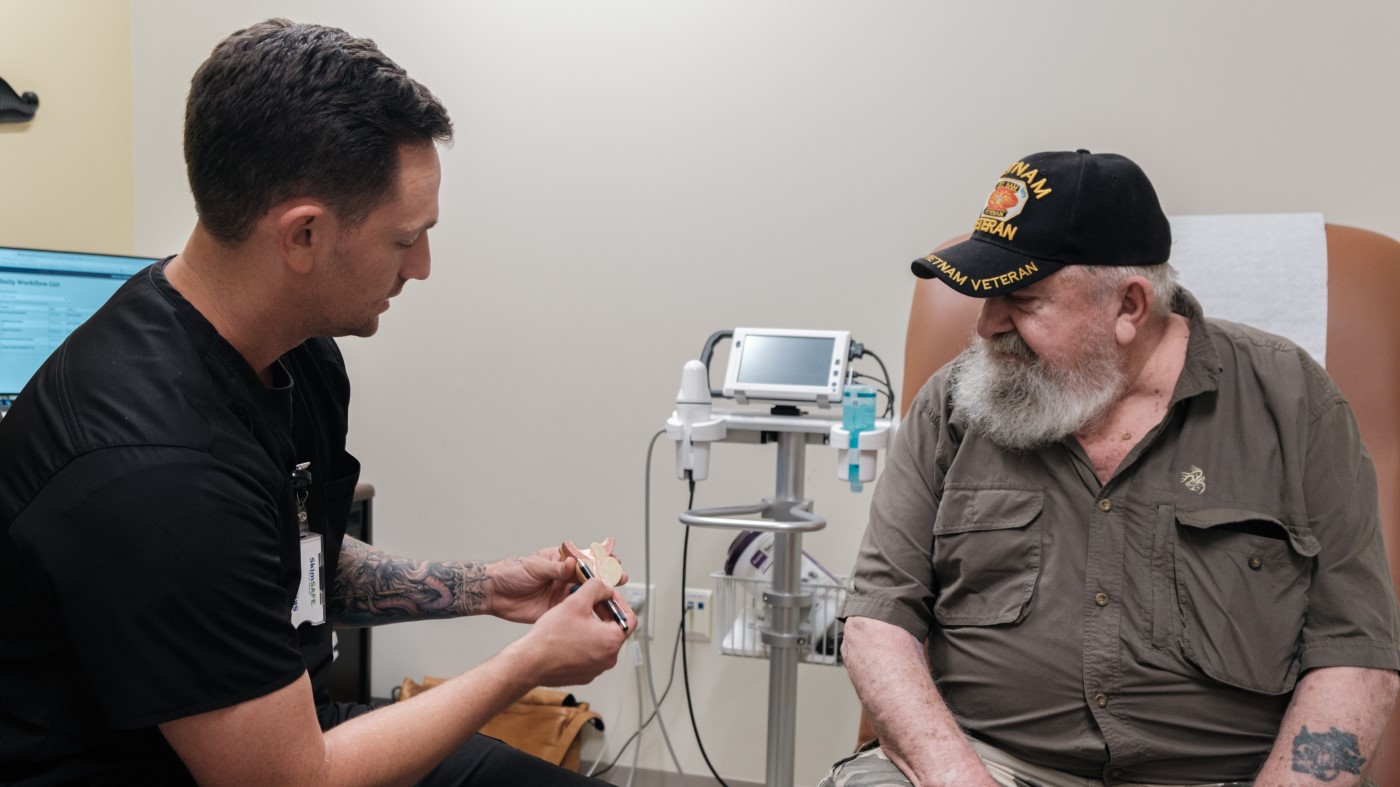Many of us only learned about advances in virtual communication due to the COVID-19 pandemic. But VA has been leading the way in telehealth innovation for years, making sure Veterans can access care when and where they need it.
There are 4.7 million Veterans in the United States living in rural areas, and 58% of them are enrolled in the VA health care system. Telehealth technology helps us improve health for Veterans in rural areas by connecting them with qualified care providers.
As more and more Veterans choose to take advantage of telehealth, we’re hiring in multiple positions that focus on telehealth, offering you new ways to serve Veterans as a part of our team.
Nursing
Just like in a hospital or other health care setting, nurses are the backbone of telehealth patient care. The key difference is that you would be doing your critical work with Veterans remotely.
Licensed practical nurses may serve as virtual presenters, making introductions or sharing information and images between patients and providers. They also gather information needed for proper diagnosis. Your role can continue even after the visit, providing patients with follow-up information and materials related to their care.
In addition to patient care, a registered nurse takes on more of a supervisory role, leading telehealth program staff in day-to-day clinical operations while maintaining a standard of excellent care for our Veterans. You may also assist in evaluating and using the telehealth technologies employed by the facility to meet clinical care standards.
Health technicians
Just as intake teams control the flow of in-person patients in a facility, a similar role exists for telehealth care. While stationed at a VA medical center or other facility, a health technician supports and manages telehealth operations. They tackle a wide range of duties to ensure the best possible virtual experience for Veterans.
You may start by screening patients for telehealth services or prepping the medical and telecommunications equipment used in the upcoming examinations. You may also find yourself maintaining schedules of patients, technologies, providers and presenters, keeping everyone on track and ensuring the telehealth experience runs smoothly.
Mental health professionals
Telehealth services aren’t limited to physical ailments and routine checkups. We have a strong background in mental health services for Veterans. Telehealth operations have been applied to the field of mental health care for many years. This can include time with a social worker for providing direct clinical services. Social workers can then work with a patient care team to deliver care remotely.
VA psychologists can also use telehealth to practice in specialized areas such as post-traumatic stress disorder, traumatic brain injury or serious mental illness.
Program specialists
If you’re more of a technical expert, VA’s wide network of communications systems needs strong technical expertise. Program specialists provide critical operational management and the technical know-how to maintain clinical telehealth operations at our facilities.
You would install, configure and test telehealth equipment and the necessary applications and software. When the time comes to teach our staff how to use that equipment, you are the one we would call.
Your work also happens behind the scenes, as you manage the flow of devices around facilities, tracking usage and inspecting equipment when not in use. Your work ensures that we can reach out to Veterans smoothly and efficiently.
Work at VA
With our work to remain at the forefront of technology and Veterans care, see what else we offer when it comes to telehealth careers.
- LEARN more about our telehealth
- EXPLORE our efforts to reach rural Veterans.
- READ about our mission.
- APPLY for jobs at VA.
NOTE: Positions listed in this post were open at the time of publication. All current available positions are listed at USAJobs.gov.
Topics in this story
More Stories
Providing better outcomes for diverse Veterans means finding ways to reach them, whether on a personal level or on a geographic level.
As a chief of staff, you’ll have many important responsibilities, but also an opportunity to make positive change for our team and the Veterans we serve.
As a geriatrics specialist at VA, your work will have a huge impact on Veterans as they come to rely on VA’s care as they grow older.






